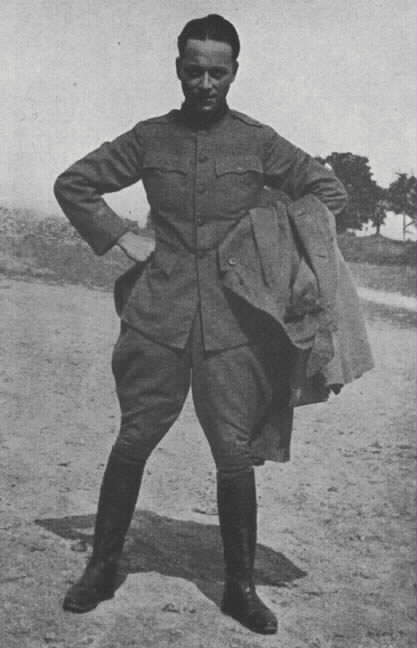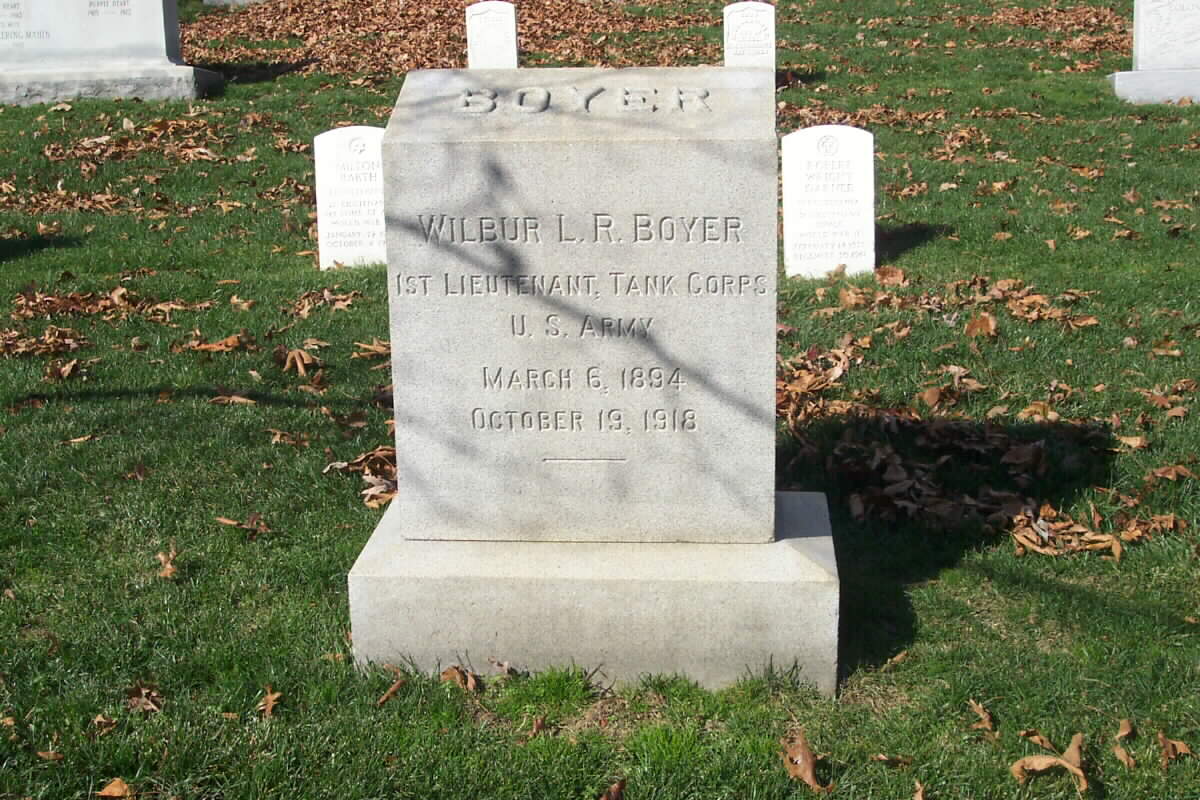WILBUR LEROY BOYER:
Born March 6, 1894, in Muskegon, Michigan. Son of Harry Nelson and Elizabeth Downing Boyer. Home, Chicago, Illinois. Educated Orchard Lake Military Academy, Cornell, and Leland Stanford Universities, one year each. Brokerage in Chicago. Joined American Field Service, February 14, 1917; attached Section Four to August 29, 1917. Enlisted French Artillery; Artillery School, Tank Service, near Paris. Lost eye, premature shell-explosion. Croix de Guerre. Returned to America. Torpedoed on Antilles, April, 1918. Enlisted U. S. Tank Corps, physical examination waived. First Lieutenant. In charge, Machine Gun School, Camp Colt Gettysburg, Pennsylvania. Died at home in Washington, D. C., on leave, October 19, 1918, of influenza. Buried in National Cemetery, Arlington, Virginia.
THERE is always an added glory to the achievements of a lad whose health is none too robust, and such was the case with Wilbur Boyer. He entered Cornell University with the intention of becoming a civil engineer, but after two years was compelled to abandon the idea. As his mother has written: “Physically he was unfit for a career as civil engineer, as he had a bad leakage of the heart from early boyhood, a fact he never admitted until his last illness.”
After leaving college he was employed for a time in a broker’s office in Chicago, until, in February, 1917, he was accepted as a driver in the American Field Service. At the end of his six months’ enlistment period, during which time he served with Section Four on the Verdun and Champagne fronts with remarkable energy and devotion, he entered a French Artillery School near Paris. Here he was progressing rapidly in the tank service, when the premature explosion of a gun resulted in the loss of his left eye. Although badly wounded Boyer showed the greatest courage and presence of mind in extinguishing the resulting conflagration and carrying his Lieutenant to safety. For this he was awarded the Croix de Guerre with a splendid citation. He was on board the Antilles, on his way home to recuperate, when the vessel was torpedoed and sunk. He was picked up and carried back to France and later sailed on the St. Louis.
A friend of his mother’s wrote of him, shortly after his return: “I was in his confidence during the year in which he put forth every effort to be accepted for service in France. He showed at this time the greatest perseverance and singleness of purpose until he succeeded. During his months in service I heard from him frequently and I was amazed at his powers of observation and his startlingly concise way of presenting facts. On his return he showed two characteristics which are typical, he talked very little and was very conservative when he did make statements. He said to me: ‘I cannot talk about what I do not know, and what is the use of endlessly repeating what you have only heard.’ He is a student and reads constantly the best books. His power of concentration is remarkable. I have seen him sit for hours intent upon his reading, utterly oblivious to the conversation going on around him. He is quiet and dignified, but is gifted with that keen sense of humor which relieves trying situations and makes men good companions.”
In April, 1918, while still suffering from the effects of his service in France, he had himself inducted into the service after much difficulty. Men were needed, however, with his knowledge of tanks and machine guns, so that a physical examination was waived. At the time of his death on October 19, 1918, he was serving as a First Lieutenant in the Tank Corps, in charge of a machine gun school at Camp Colt, Gettysburg, Pennsylvania. He had gone home to Washington on a five days’ leave, when he was taken ill with influenza and died.
Undaunted by ill health and wounds, Wilbur Boyer’s one idea had been to serve his country to the utmost regardless of the consequences to himself. No simpler or finer tribute could sum up his life than the words of his mother: “He was all I had, but he fought the good fight, lived his young life to the full, and was not afraid.”
BOYER, WILBUR LEROY
- 1LT United States Army
- DATE OF DEATH: 10/19/1918
- BURIED AT: SECTION 3 SITE 3984-WS
- ARLINGTON NATIONAL CEMETERY
Michael Robert Patterson was born in Arlington and is the son of a former officer of the US Army. So it was no wonder that sooner or later his interests drew him to American history and especially to American military history. Many of his articles can be found on renowned portals like the New York Times, Washingtonpost or Wikipedia.
Reviewed by: Michael Howard


